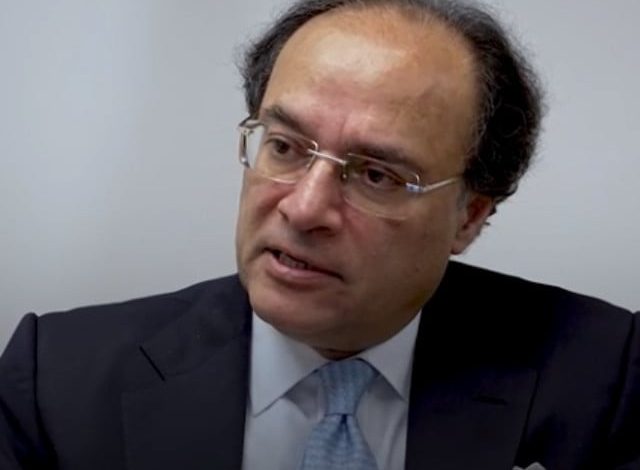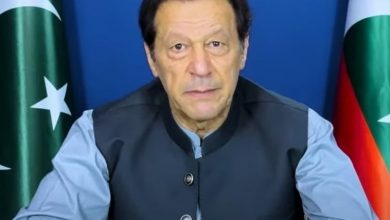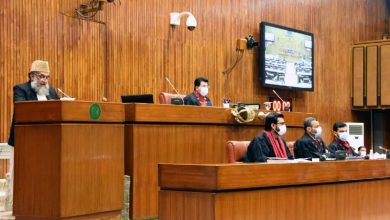Finance minister confident of enjoying larger, longer IMF programme

Finance Minister Muhammad Aurangzeb expressed confidence in securing a fresh and bigger IMF loan, and highlighted the positive shifts in macroeconomic factors, aiming to bolster the country’s struggling economy.
In an interview with The National, published on Monday, the finance minister noted stabilization in the currency and anticipated a decrease in inflation to single digits by next year. The interview came following discussions at the recent IMF and World Bank Spring Meetings in Washington.
Aurangzeb said, “We have entered as a country this year in a better shape, compared to where we were this time last time around.”
He said that macroeconomic indicators were moving in Pakistan’s favour. “He also sounded optimistic that Pakistan’s currency has finally stabilized and said rampant inflation is on track to drop to single-digit levels by the end of next year,” The National said.
“We have had very constructive discussions with the IMF managing director and the senior team. And given that we are successfully completing the programme, the fund has been very receptive in terms of agreeing to consider a larger, longer programme,” he added.
Replying to the question regarding the possibility of a decline in remittances, the finance czar said, “The reality is it’s the other way around, we expect to close at $29 billion this year compared to last year’s $28 billion.”
“The remittances have not only been holding up, this fiscal year they will actually go up,” said Aurangzeb.
He added that the rupee was now stable and expected it to depreciate by between six to eight per cent a year going forward.
Noting a decline in inflation from 38% to 21%, the FM hailed growth in the technology sector saying it had grown from “literally nowhere” a few years ago to about $3.4bn today.
Read Aurangzeb banks on strong economic indicators for stable rupe
“There’s no reason why it can’t go to $4.5bn or $5bn in the next year,” he added.
The minister highlighted that the Middle East’s volatile situation remained a recurring topic of discussion during the Spring Meetings following Iran’s drone and missile attack on Israel, prompting Israel to reportedly retaliate with a strike inside Iran.
“Everyone is hoping it will remain contained,” Aurangzeb said.
While shedding light on the China-Pakistan Economic Corridor (CPEC), the finance minister said that Pakistan had “missed a trick” by taking too long to monetize projects, including by increasing exports to special economic zones.
He concluded by saying, “We have been slow over the last few years. We are going to move forward with phase two so that we can get going with the revenue-generating part of CPEC.”
The finance czar last month met with World Bank Country Director Najy Benhassine, and International Finance Corporation (IFC) Country Manager Zeeshan Ahmed Sheikh to discuss collaborative development strategies and initiatives aimed at promoting economic growth, enhancing financial stability, and fostering sustainable development within the country.
During the meeting, the importance of strengthening partnerships with international financial institutions like the IFC and World Bank was highlighted. Discussions focused on leveraging their expertise and resources for the country’s development agenda.
The finance minister also highlighted the government’s commitment to creating an enabling environment for private-sector investment and ensuring transparency and accountability in financial matters.





